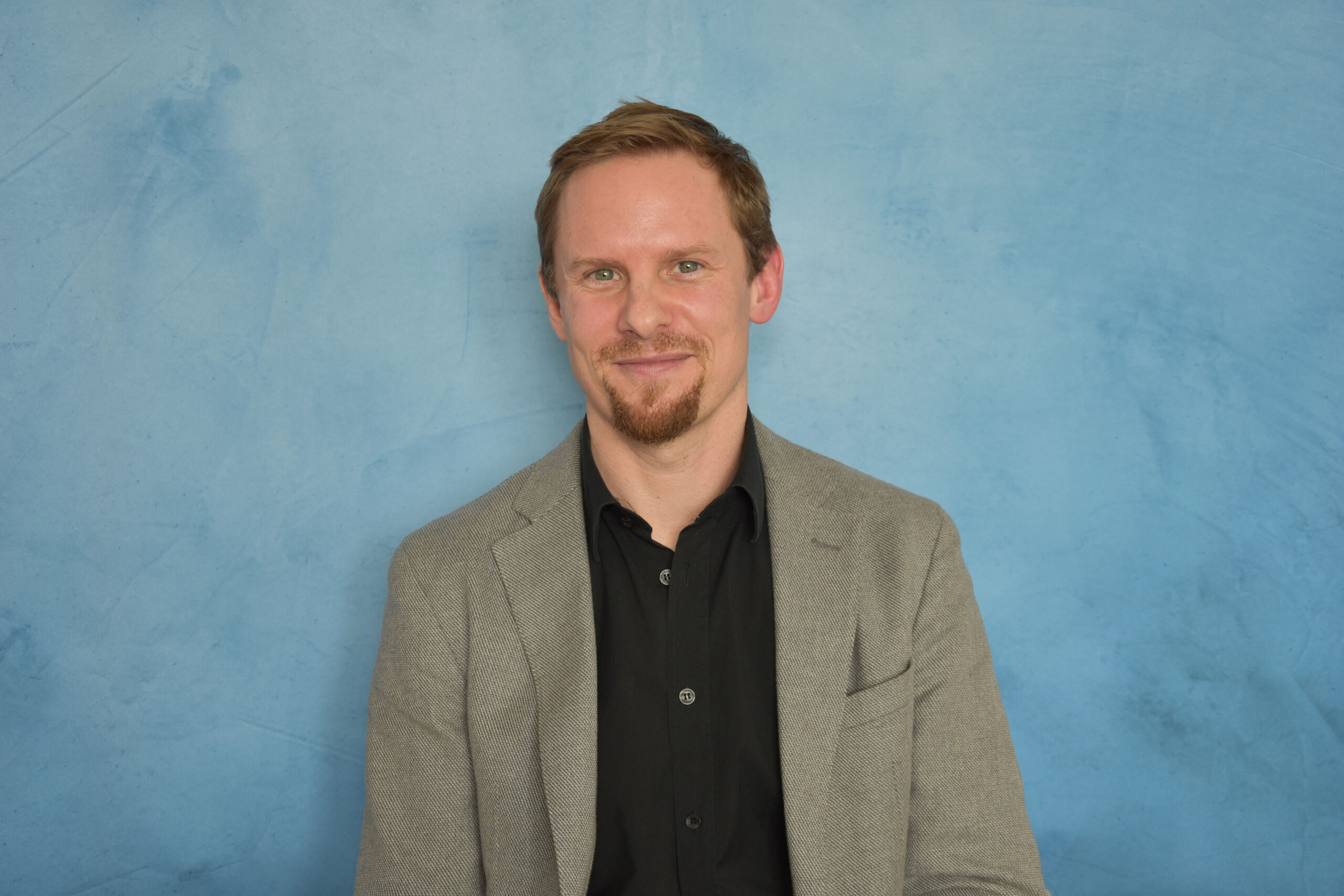 Nicolas Ruffieux is a professor in the Department of Special Education at the University of Fribourg. He describes the values behind this project.
Nicolas Ruffieux is a professor in the Department of Special Education at the University of Fribourg. He describes the values behind this project.

Good morning, Mr. Ruffieux,
You are Professor and Head of the Bachelor of Clinical Curative Education and Special Education at the University of Fribourg. We’re going to talk about autism with you today. Indeed, many people associate autism with intellectual disability. So, can you explain to us how autism found its way into the university classroom?
Indeed, this false idea that autism is necessarily linked to an intellectual deficiency is still very present… even among professionals working in higher education! Yet current figures show that about half of the people on the autism spectrum have an average level of general intelligence, or even above average for some of them.
Although these students face additional challenges (which account for their under-representation in higher education), it is only natural that we find them in higher education. Students with autism spectrum disorder have always been present in higher education, but the change in perspective regarding the inclusion of neurodiversity in the school environment means that their situation is now better recognized and that there are perhaps more of them.
Therefore, I believe that it is very important to make visible the academic career of students on the autism spectrum. In Switzerland, unlike in the Anglo-Saxon countries, we are still very shy about talking openly about autism and offering these students appropriate adaptations at the graduate level. The e-platform, developed for the University of Fribourg, aims precisely at highlighting the situation of these students and the possible aids/adaptations to favour their academic success.
Isn’t there a danger of a race to the bottom if we let atypical people into university?
On the contrary! In my opinion, the diversity of student profiles is a real asset for our training courses, as well as for certain professional fields which sometimes particularly seek out people on the autism spectrum precisely because of their atypical way of thinking or their particular skills. What is true is that the inclusion of people with ASD involves paradigm shifts on the part of the academic community. However, the majority of the recommended adaptations are beneficial to all students, which is the main principle of universal design for learning. For example, being able to study in a quiet environment free of interfering sensory stimuli is particularly important for students with ASD. Providing a list of libraries and facilities that meet these criteria within the university helps all students with these needs.
Can you explain how autistic functioning might affect a student’s course?
First of all, it is important to remember that each person with ASD has a particular profile, so we must be careful about making generalizations, but there are some difficulties that are regularly reported by these students. In the academic field, for example, it is often difficult for these students to adapt to the different teaching methods (lecture courses in large auditoriums, group work, distance learning, etc.), to manage the multitude of administrative information (registrations, procedures, etc.), to organize their schedule in the short and long term, as well as to manage the stress related to the different examination situations and interactions with other students and teachers. Outside of the academic field, the transition to higher education often corresponds to greater autonomy for the activities of daily life (living outside the family home, managing a budget, organising time, preparing meals, etc.). This change of environment can represent a major source of stress for these students, who generally appreciate having a well-established and regular living environment.
While this is true for many students who do not have an autism spectrum disorder, for students with autism, these adaptations present even greater, and sometimes insurmountable, challenges without appropriate support. In fact, several scientific studies report that the average dropout rate from university is significantly higher for students with autism spectrum disorders. Simple adjustments and aids can sometimes facilitate this adaptation and reduce the risk of dropping out of school.
You specialize in understanding executive functioning. In a few words, what is it about?
Executive functions encompass the cognitive processes that enable us to adapt to complex and novel situations in our daily lives. They can be thought of as the “conductor of our brain”. These functions include mental flexibility, inhibition, planning and working memory. One characteristic often found in people on the autism spectrum is difficulties with executive functioning.
At high school, the student was used to a well-established framework: regular class schedule, very structured and supervised organization of work, regular evaluations, etc. This contrasts sharply with the university setting, which requires much more autonomy and organization on the part of the student. The famous “academic freedom” will thus put a lot of pressure on the executive functions, especially for students with autism. For example, personal organization (use of an agenda, planning of revision time, anticipation of deadlines) or note-taking (selection of essential information) are particularly difficult to manage for these students. Many adaptations are therefore aimed at helping them to compensate for these executive difficulties, for example by offering workshops on notetaking, by providing software to facilitate the organisation of work, by establishing clear procedures, etc. Again, in the spirit of universal design for learning, these accommodations benefit all students.
Can you explain how teachers could take these particularities into account without compromising the quality of their teaching?
The general idea is to provide these students with a clear and structured framework that limits ambiguities, by first asking this question: are all the modalities of my course sufficiently explicit (start and end time of the course, planned break, platform to be used to access documents, mode of work, learning objectives and expectations for the exam, clear deadlines, etc.). It is particularly important to establish a very clear framework from the beginning of the semester in order to limit the ambivalence that can generate a lot of anxiety in these students and sometimes lead to blockages that could easily have been avoided.
Another important aspect is to try to consider, as much as possible, the requests of the students concerned. A simple example: In one of my courses, a student on the autism spectrum pointed out to me that I often forgot to turn off the speakers in the room between videos, which generated a background noise that I personally did not hear but which greatly disturbed the student. Apparently, she had this type of problem (hypersensitivity to noise and light mainly) with other teachers but was very embarrassed to talk about it; with her agreement we then sent a message to all the teachers to make them aware of this issue (in this case the student preferred to remain anonymous). This example also illustrates that it is often more difficult for these students to communicate a problem directly to teachers.
What advice would you give to a young student on the autism spectrum?
At first glance, the university setting may seem overwhelming and a source of significant anxiety. I would first advise the young student to prepare well for the transition to the university setting by visiting the university sites and the city to familiarize themselves with the environment before the semester begins. The first few weeks of classes in each semester are then very important for gathering practical information about each course. If this student has to leave his or her home environment to study, I would recommend that he or she anticipate the challenges of this change (managing a budget, preparing meals, living with a roommate, traveling, etc.), for example, by moving a few weeks/months before the start of studies or by practicing these tasks in advance to limit the double stress of the change of environment and the start of studies.
Many students on the autism spectrum don’t need any special help, but I would recommend that this student try to identify his or her needs and not hesitate to report to the Studies and Disability office to get information and find out about possible adaptations. If he or she thinks that it could be useful, they should not hesitate to talk about their autism to their peers so that they understand how it affects them, and so that they can call on their fellow students more easily if necessary. In addition, I believe it is essential to spend time planning and organizing each academic year, using an effective diary and note-taking system. On the Autism&Uni e-platform, students can find a lot of useful and concrete information, as well as testimonies from students who have experienced similar situations.
Thank you
Additional information
Nicolas Ruffieux is part of the Autism&UniSwiss initiative and founder, with Nathalie Quartenoud and Catherine de Blasio, of this website. He is actively involved in the support of neurodiversity at the University of Fribourg.
About the author
Edited by: Nathalie Quartenoud
Translated by: Daniel Dukes


 Back
Back